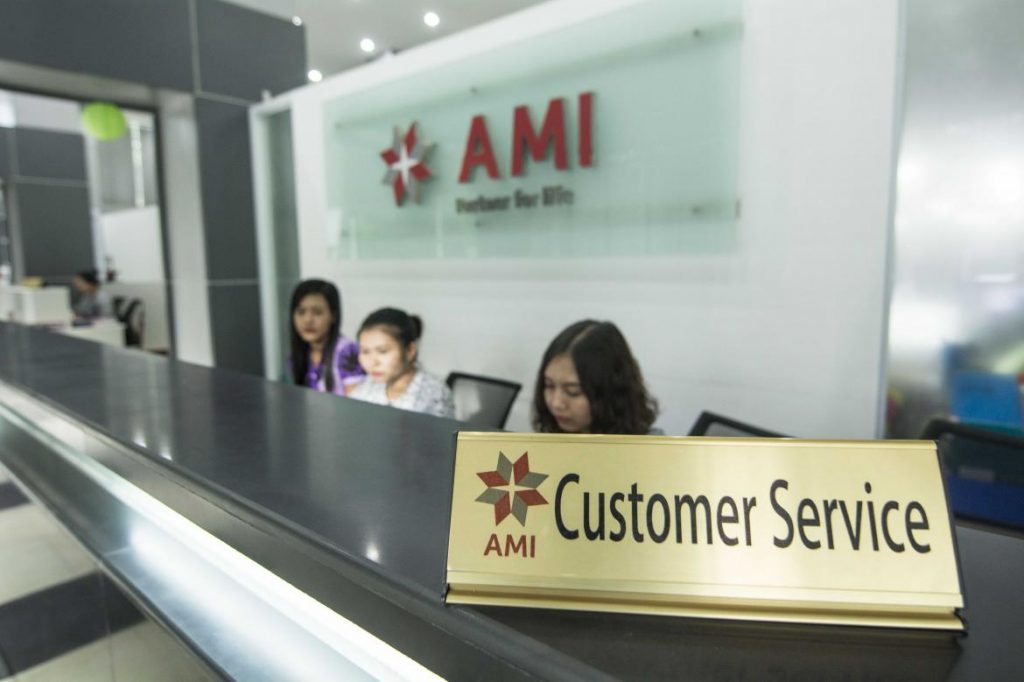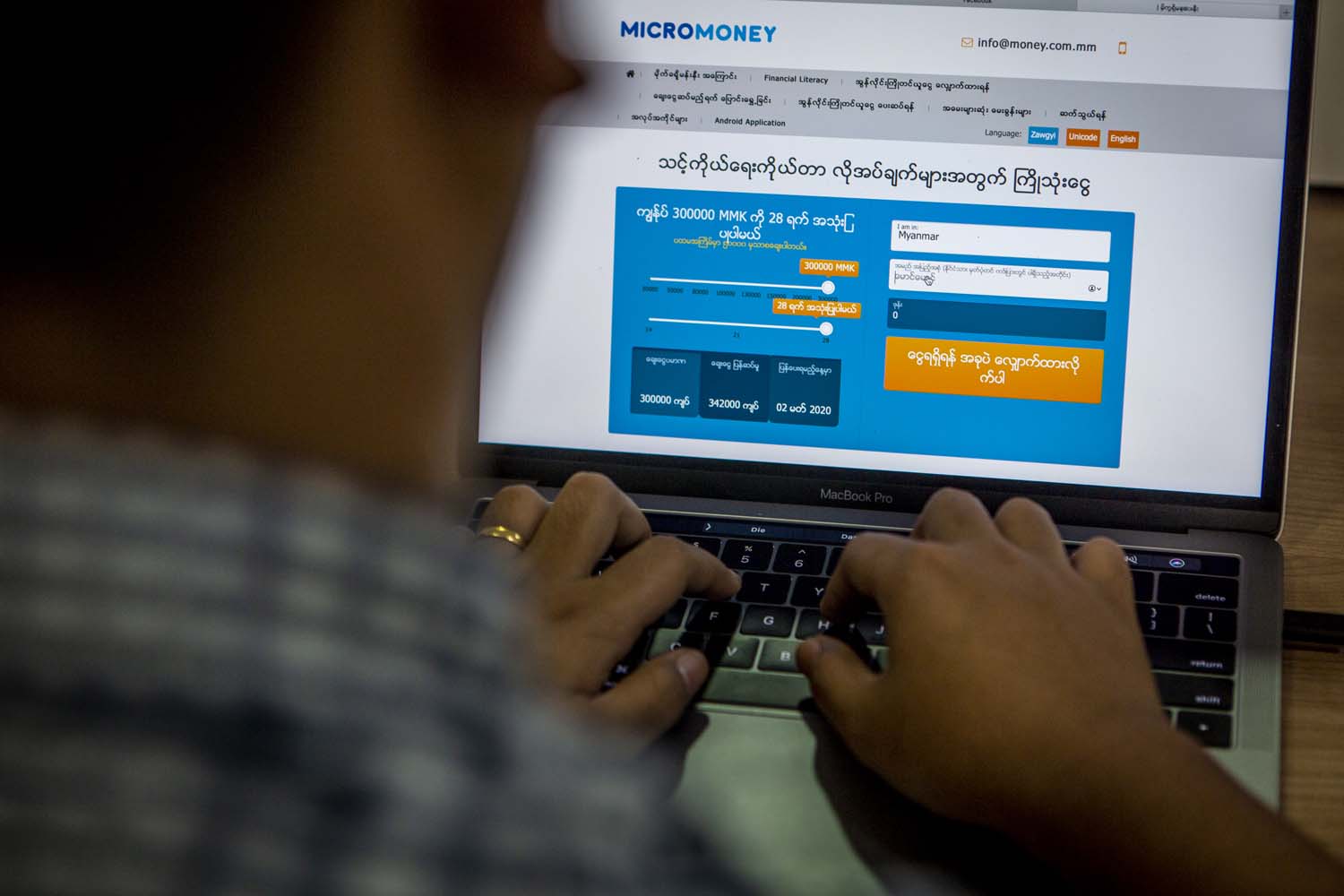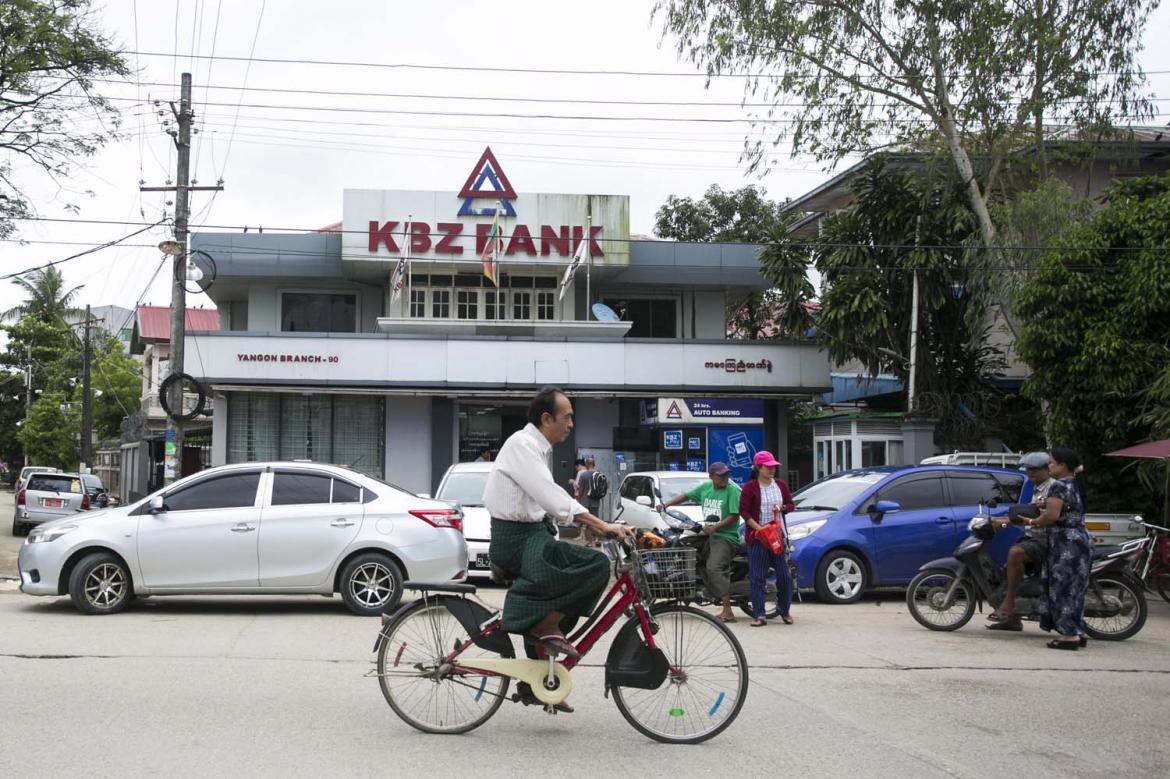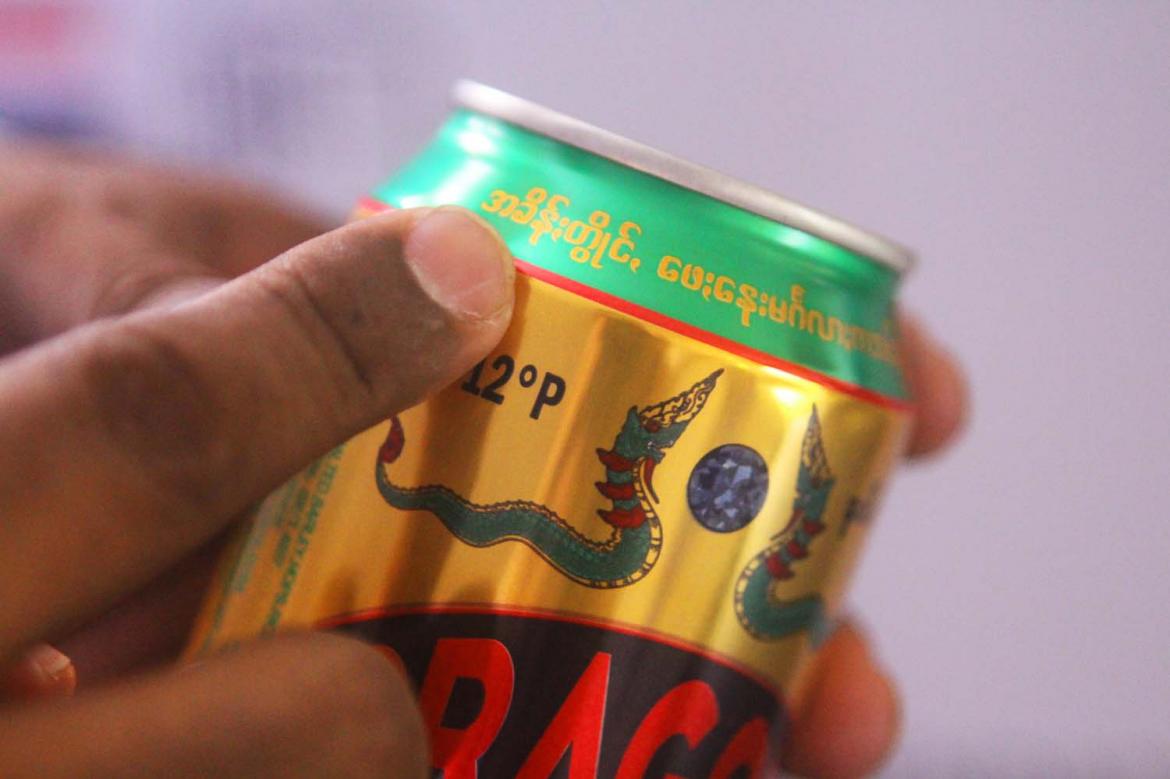Five years after the government announced plans to liberalise the insurance market, domestic and foreign insurers are becoming frustrated at the slow pace of reform.
By KYAW YE LYNN | FRONTIER
IN 2012, state-run Myanma Insurance lost its monopoly and the government announced plans for liberalisation in the sector. Five years later, the insurance industry is still waiting for significant change – but officials say a reform plan is complete and will soon be implemented.
For now, the market remains immature and fragile due to tight restrictions that domestic insurers say are inhibiting competition. Foreign companies, meanwhile, are still waiting to learn if they will be permitted to operate on their own or be required to form joint ventures.
The government’s decision to reform the sector in cooperation with domestic and foreign insurers was aimed at addressing the low rate of insurance cover in Myanmar. Allowing in foreign insurers would also attract investment and provide a new market for government bonds and securities.
jtms_ybsaccident02.jpg
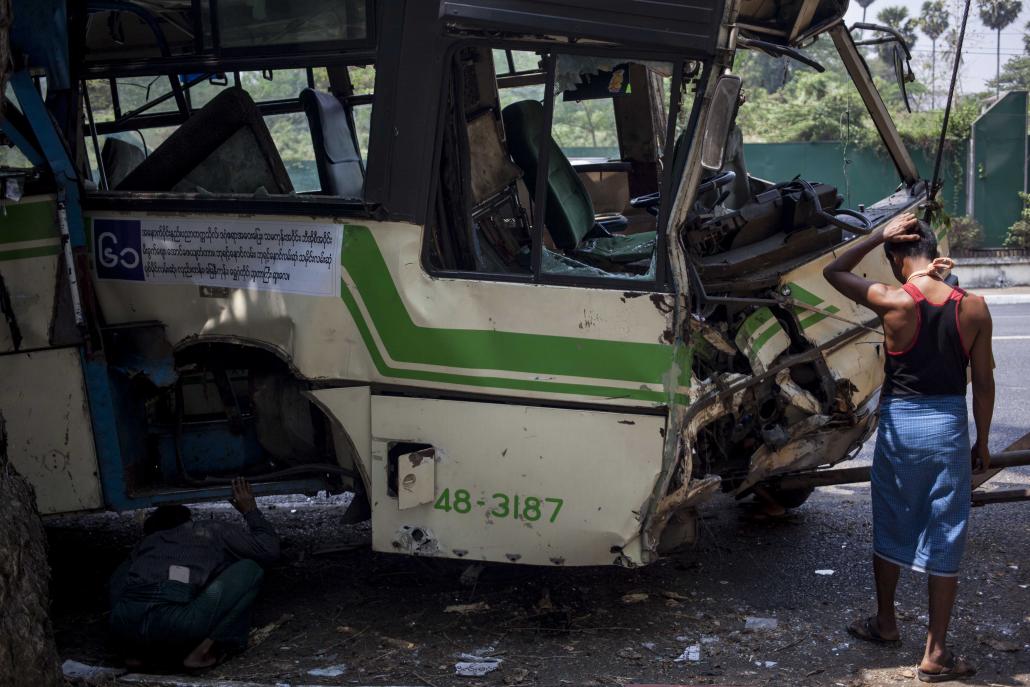
Mandatory third party vehicle insurance is one of the most common insurance products in Myanmar at present. (Steve Tickner | Frontier)
Support more independent journalism like this. Sign up to be a Frontier member.
But change has come slowly. A liberalisation roadmap was to be submitted to the government by the end of 2016. In early June, Daw Sandar Oo, the managing director of Myanma Insurance, was quoted as saying that a blueprint for insurance market reform within three months.
Speaking to Frontier on September 25, U Thant Zin, the director general of the Financial Regulatory Department under the Ministry of Finance and Planning, said the “roadmap for market liberalisation” has been drafted and approved by the Union government.
However, he refused to give details of the roadmap’s contents and said it would not be made public for now. More information would be released only when foreign insurers were granted licences, Thant Zin added.
“The IBRB has been in talks with players since earlier this year about market liberalisation,” he said, referring to the Insurance Business Regulatory Board, on which he serves as secretary.
Meanwhile, a selection committee led by Deputy Minister for Finance and Planning U Maung Maung Win has been formed to issue licences to foreign insurance companies that have opened representative offices in Myanmar, he said.
“The date of issuing licences to foreign firms is yet to be set.”
Growth inhibited
Myanmar had a flourishing insurance sector under British colonial rule and in the years after independence in 1948.
There were reportedly more than 80 domestic and foreign insurance companies operating in Myanmar until they were nationalised in 1963, the year after military strongman General Ne Win seized power in a coup.
Since then, state-owned Myanma Insurance – established in 1952 as the State Insurance Corporation, a division of the Central Bank – was the only provider of life and other insurance policies.
After the transition to democracy began in 2011, Myanma Insurance relinquished its monopoly when it granted licences to 12 domestic firms, which entered the market in 2013.
A total of 24 foreign insurance companies, including 10 life insurers, seven general insurers and seven brokers, are also waiting to receive licences.
Three Japanese firms have been granted permission to do business at the Thilawa Special Economic Zone on Yangon’s southeastern outskirts.
But the market remains tiny. In April, consulting firm Aon estimated that in 2015 there was just US$46 million in gross written premiums, which it “said was “very low even compared to other developing markets in Asia”.
It forecast that with an “increasingly open, competitive market”, the market for non-life insurance could rise to $1.4 billion by 2030, and $900 million for life insurance over the same period.
So far though progress in developing the insurance market has been slower than expected, something industry figures blame on restrictive regulatory policies.
“Due to the restrictions, we can only sell the same products at the same prices with the same benefits,” said U Myo Min Thu, managing director of AYA Myanmar Insurance.
“It makes the market less competitive and less attractive,” Myo Min Thu told Frontier on September 22.
“What we can do is customer service, and raise insurance awareness among the public.”
tzhami38.jpg
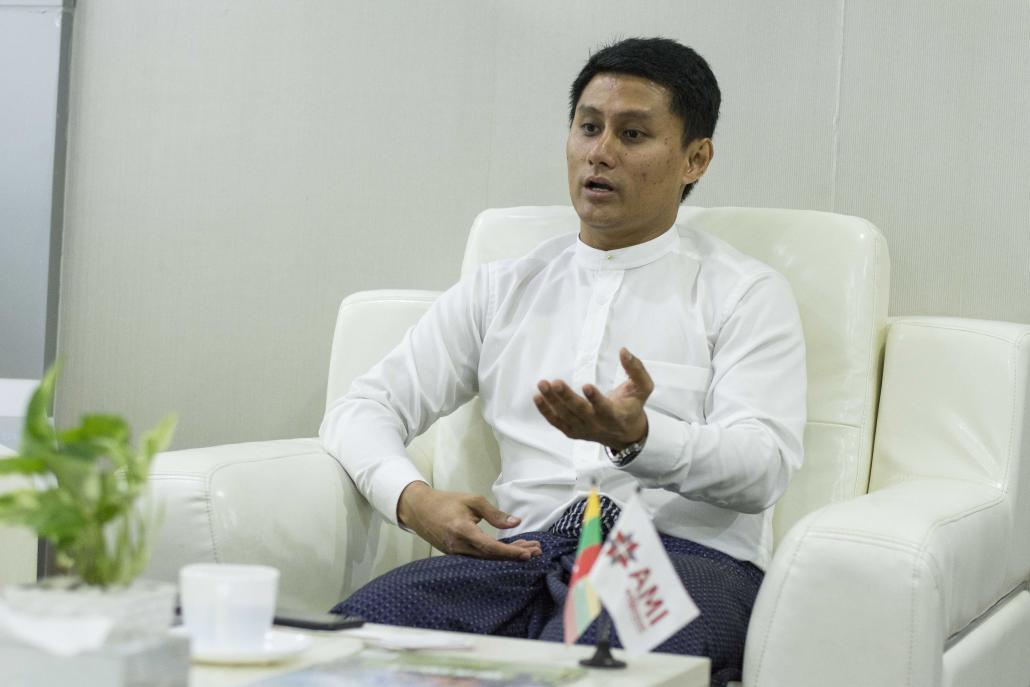
U Myo Min Thu, the managing director of AYA Myanmar Insurance, says local firms are ‘ready to take the next step’ in a more open insurance market. (Teza Hlaing | Frontier)
Myo Min Thu said that he initially agreed with the government’s decision to open the market cautiously to avoid risks. But he believes that now is the time for the industry to be liberalised.
“We are ready to go to the next step after operating for five years under heavy restrictions,” he said.
“We are aware that regulators are working to lift the restrictions on local firms. We welcome the move.”
Among the foreign companies with representative offices in Myanmar is one of Asia’s biggest insurers, AIA Group. Its chief representative in Myanmar, Mr Tom Renny, said private domestic insurers needed to be able to offer their own products to expand.
“They need autonomy; without autonomy, market competition is meaningless,” Renny told Frontier on September 26. “Healthy competition is needed to make the industry grow.”
Protectionist sentiment
Myanma Insurance enjoys greater freedom than domestic private sector insurers.
“We can’t compare Myanma Insurance with the private firms because it has been in operation for 52 years,” Thant Zin said. “Given that long experience we don’t need to advise it how to operate.”
An executive with a domestic insurer said there was irritation among private sector insurers over the privileged treatment of Myanma Insurance and that the time was right for liberalisation.
“The market cannot grow without innovation and competition and I’d say this is the right time to start,” he said, speaking on condition of anonymity.
“Look at the country and you will see it has a young population; they are the insurance market’s future.
“Let the firms do their jobs to improve the public’s knowledge about insurance,” he said. “Then the market will definitely mature within 10 years.”
The big question facing regulators is how much freedom to give foreign insurers. Protectionist sentiment is widespread not just among local firms, but also regulators.
U Maung Maung Thein, a deputy finance minister in the Thein Sein government, supports protectionism because he believes that liberalising the insurance sector will enable big foreign companies to dominate the market.
“Our local companies such as banks and insurers are still infants and they must be protected, no matter what critics say,” he told Frontier last month.
A former general manager of Myanma Insurance, Maung Maung Thein served the government for 40 years. He resigned as chair of the Securities and Exchange Commission of Myanmar and the IBRB in May 2016 after the National League for Democracy government took office.
The former government planned for market liberalisation to be implemented in three stages, Maung Maung Thein said.
“Firstly, let the local firms grow and be strong, then allow foreign companies to operate in the market by joint-venturing with local ones. One hundred percent liberalisation is the final stage, decades later,” he said.
Maung Maung Thein, now the executive chairman of Zico Law Myanmar Ltd, said he remained in contact with insurance regulators and companies, who consulted him about the liberalisation of the financial market.
“Many regulators agree with idea of step-by-step liberalisation,” he said.
“Therefore I think foreign insurers will only be allowed to form joint ventures with local ones to operate here. That’s the best way to make the market grow slowly and steadily.”
The market is not ready to welcome foreign firms, Maung Maung Thein said.
In contrast, Renny from AIA Group said the market would not attract new investment if the government decided that foreign firms could only enter the market in joint ventures with domestic insurers.
tzh_aia_insurance42.jpg
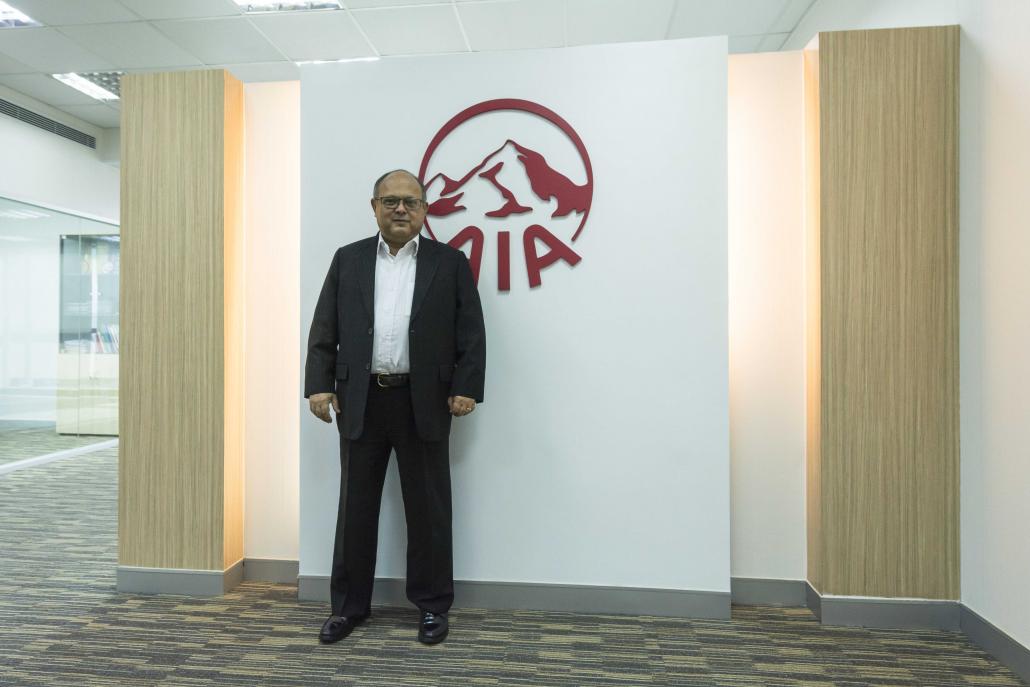
Tom Renny, chief representative of AIA Group, one of Asia’s largest insurers. (Teza Hlaing | Frontier)
“If it’s joint ventures, we will not be bringing new money into the country, but paying money to our JV partners. The government doesn’t get it,” he said.
“But if it’s 100 percent investment, the government will get our capital investment. That’s new investment in the country.”
Renny added that if foreign insurers were permitted to operate their own businesses they would have to buy government bonds and securities.
“That’s also new investment into the country,” he said.
Unanswered questions
Thant Zin said regulators have already made a decision on whether to allow foreign insurers to set up fully owned subsidiaries, or require them to partner with local firms in a joint venture. He declined to reveal what they had settled on, but said it came following months of consultations with domestic and foreign insurers.
The blueprint for liberalisation has already been approved by the government and the process was set, he said.
“We just need to make a decision about which foreign firms should be licensed to begin the second wave of liberalisation.”
Although a working committee has been formed to establish a Myanmar Insurance Association, it remains unclear whether foreign firms will be represented.
Renny said foreign firms had not yet been informed if they will be members of the association.
“Are we going to be full members? Are we associate members? Can we be in the working committee? We don’t know yet,” he said.
Although FRD says it consulted domestic and foreign firms about plans to establish the association and market liberalisation, Renny said the foreign insurers had not been asked for comment and advice.
Meanwhile, change is also on the horizon at Myanma Insurance. Speaking to Frontier on October 1, managing director U Khin Maung Win said the state firm was also eager for liberalisation in the sector, as it would expand the size of the potential market for its products. “We also want more competition as it will increase market penetration,” he said.
The government planned to amend the 1993 Myanma Insurance Law to enable corporatisation or privatisation of the firm, he said. The law presently states that the state is the sole shareholder in Myanma Insurance.
“We are working to transform Myanma insurance into corporation, as has been done at Myanma Airways and Myanmar Port Authority, so that we can operate outside the government’s budget allocation,” he said.
“Another way of transforming Myanma Insurance is to form a joint venture with private companies … but we will have to amend the law first.”
Delay after delay
Domestic insurers also have their grievances. Representatives told Frontier they were informed about a year ago that they would be able to provide all the products offered by Myanma Insurance as part of the second wave of market liberalisation, but they are still waiting.
Another wave of liberalisation, granting licences to foreign firms, was expected to have begun in September. The foreign firms are still waiting, too.
“We were told we would hear something before Thingyan [in April], but nothing happened,” Renny said.
Foreign insurers had been hoping for an announcement by the end of September. However, the first meeting of the government’s selection committee, due to be held in September, did not take place.
“So we are not going to hear anything this month,” Renny said in the interview on September 26.
Thant Zin confirmed that the first meeting of the selection committee had been postponed, but said the issuing of licences would not take a lot of time because the government was pushing to transform the financial sector.
He expressed confidence that the announcement would be made before the fiscal year ends on March 31.
“But it is not going to happen very soon.”
TOP PHOTO: Teza Hlaing | Frontier


